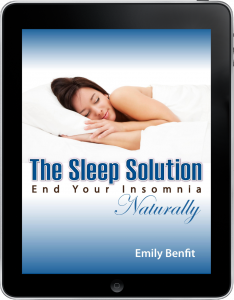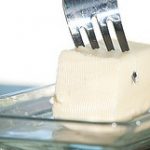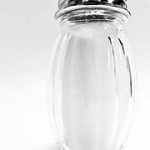Want an easy way to start a highly-profitable, $200 million-per-year health fad? Tell the insomnia industry that your “all-natural” supplement is the cure-all secret to sleep problems, and buy your own “research” to support your claims!
Yep, I’m referring to the absurdity of the “melatonin madness” craze, which has been going strong since the mid-90s. The wildly-exaggerated and outright-fraudulent claims used to sell the supplement have been bafflingly successful, in spite of the grave lack of legitimate scientific evidence to support them. The very few selected studies which point to the supposed benefits of melatonin are seriously flawed—with one even found to have been conducted by a scientist who owns a company that sells melatonin!
If you’ve been taking this supplement with the intent of improving your sleep, I’m sorry to tell you that you’ve been duped. Melatonin doesn’t work, it isn’t safe, and you could be seriously gambling with your health if you continue to take it.
Why Melatonin is NOT a Sleep Aid
If you’re into natural health, chances are that you’ve tried taking melatonin for sleep before. Because, why not, right? Everything you read about this stuff says that it’s completely natural, and a necessary hormone that you need to sleep!
Well, I may be in the minority when it comes to opinions on this “natural” supplement, but I absolutely do not recommend taking melatonin.
Melatonin is a natural hormone produced in the body, but just because it’s “natural” doesn’t mean that taking the hormone as a supplement is a good idea. Why do people take melatonin? Well, because it’s associated with sleep. But that is only because melatonin is a stress hormone. It is produced in response to the stress of your body exposed to darkness, without exposure to natural light. Darkness is actually highly stressful to the body, and the body’s response is to sleep, which is anti-stress.
Let me clarify that—melatonin does not promote sleep, it simply turns on around the time that your body needs to sleep, in response to the stress of darkness. Its function is more that it reminds your body what time of day it is—night time—and adds to the stress load of the darkness. Your body will naturally want to counteract this stress by going to sleep. But as the saying goes, “Correlation does not equal causation.” It’s not the melatonin that signals your body to sleep—it’s only signaling that it’s dark outside!
Your body produces melatonin out of the amino acid tryptophan. When you consume tryptophan, as is found plentifully in muscle meats, the acid is converted to serotonin. And serotonin is converted into melatonin, however, this conversion happens more efficiently at night, because light blocks the production of the hormone. That is why people mistakenly think that avoiding bright lights at night is beneficial—so you can produce more melatonin. But this is simply not based in sound biological science.
If you struggle with insomnia and think that your melatonin supplement is the answer because it gives you more “sleepy hormone,” I can assure you, the problem is not that your body can’t produce enough melatonin, as though that were something you need to fall asleep in the first place. It’s not. It’s simply a hormonal reaction to the stress of darkness, but thankfully one which is vastly overshadowed by the anti-stress benefits of sleep. You will sleep best if stressful melatonin levels are minimized, not increased with supplementation!
What the Makers of Melatonin Don’t Want You to Know
In spite of all the hype, very little scientific research has been done on melatonin supplements. And in fact, the limited evidence to support it as a sleep aid has indicated that it may only be useful in remedying jet lag and may help to induce sleep in the elderly—and again, these studies are often biased and paid for by the industry itself. They also were found to have used healthy sleepers as subjects, not people who have insomnia. And the results were very inconsistent.
There simple is no solid scientific evidence to support melatonin’s effectiveness for treating insomnia in young and middle-aged adults. NONE! And there have been several studies which actually concluded that melatonin definitively does not significantly improve total sleep time, nor reduce the time it takes to fall asleep. It has therefore been proven completely ineffective in treating insomnia.
“But melatonin works! I get sleepy when I take it!”
Yeah, you might. The reason why it’s making you feel sleepy is in part due to the fact that melatonin induces a mild stupor in which you become less reactive to stimuli and cognition is impaired. Additionally, the body’s core temperature drops, and blood is restricted to the brain, heart, and organs (vasoconstriction).
These are all symptoms associated with a sleepy, drowsy state of being, which is why it may feel as though you’re being naturally primed for sleep when you take melatonin. (You’re also likely to be under the influence of the placebo effect—studies showed that even prescription sleep aids provided only about 10 more minutes of sleep than a placebo!) Because melatonin is produced prior to and during sleep, its reputation as the “sleep hormone” has been unfortunately born.
Remember, the biological action of melatonin does not initiate sleep. If you think your melatonin supplement “knocks you out” at night, you’re either experiencing physiological effects of stupor, which can cause grogginess, dizziness, and drowsiness especially in large doses (anything more than 1 mg), or you’re simply experiencing the placebo effect. And you’re actually suppressing your body’s ability to sleep soundly at the same time.
Synthetic melatonin supplementation inhibits your body’s metabolic rate. When the metabolism goes down, adrenaline goes up in direct response. And when adrenaline goes up, so does melatonin, which further slows the metabolism. This perpetuates the stress response of the sympathetic nervous system, which worsens your sleep quality. Minimize melatonin, and you’ll help your body stay de-stressed and sleep better during the night. There are better ways to induce drowsiness without the dangerous side effects of excess melatonin.
The Many Dangers of Melatonin
Continued use or excessive levels of melatonin in the body has been shown to have the following effects.
- Causes vasoconstriction of the brain, organs, and heart. Doesn’t that sound healthy? Melatonin can be very dangerous to anyone with heart problems, especially.
- Shrinks and involutes the thymus gland. This gland is critical to the immune system. Damage to the thymus gland can lead to autoimmune disease. Melatonin has the same atrophic effect on the pineal gland—the gland which produces the hormone in your body naturally.
- Shrinks sex organs. Yes, as in, testes, ovaries, and the genitals! This is especially a concern for growing children, whose sexual and hormonal development may be impaired by melatonin. And these effects are permanent.
- Inhibits thyroid function. Melatonin stimulates the production of estrogen, and inhibits progesterone, which in turn down-regulates the thyroid and reduces plasma levels of T3 and T4.
- Increases heart rate and perpetuates the stress cycle. Melatonin stimulates increased adrenaline, cortisol, and aldosterone—three of the primary stress hormones. It slows the metabolism, and causes the release of free fatty acids into the bloodstream, which further stimulate the stress response.
- Causes infertility. It breaks my heart to think of all the women out there trying to conceive who may likely take this “all-natural” supplement nightly to help them sleep, when it’s hurting their health and their chances of conception, and is probably worsening their sleep! Shockingly, melatonin is actually being tested in the Netherlands as a contraceptive—but are we hearing about these effects? No! And get this—the researchers are not finding sleepiness as a reported side effect of the contraceptive melatonin. Oh, the irony!
When you think of melatonin, think stress, stress, stress. Even with all these dangers aside, the hormone is simply not designed to induce sleep. Again, it simply happens to correlate with sleep cycles because it’s produced in response to the stress of darkness. You can’t eliminate the production of melatonin entirely—your body will naturally produce a small amount no matter how healthy your metabolism is and your stress system kept under control. And that is okay—but we certainly don’t want to burden ourselves even further by increasing melatonin, or popping it as a “sleep aid!”
Don’t believe the hype
If you take just one thing away from this post, please let it be this: when you take melatonin supplements, you are ingesting a synthetic hormone and therefore disrupting your body’s own natural hormonal balance.
I’ll repeat that. Melatonin is a HORMONE. Not a vitamin, not a mineral, not an amino acid. Melatonin supplements are a synthetic hormone. Should we really be carelessly throwing back hormone therapy pills just because they’re based on “natural” hormones?
Are hormonal birth control pills “all-natural?” Or do you need to go to a physician who will determine whether or not hormonal pharmaceuticals are appropriate for your body, in order to get a prescription for them?
As you can see by now, the only reason why we’ve all been duped into taking synthetic melatonin hormone supplements is pure and simple marketing tactics.
You won’t be able to cure your sleep problems by taking pills. That’s because what’s really at the root of sleep disturbances and insomnia is blood sugar regulation—your body’s glucose metabolism that produces cellular energy and balances all the hormones in your body that regulate your sleep-wake cycles.
 Are you ready to solve your sleep problems for good?
Are you ready to solve your sleep problems for good?
After years of struggling with abnormal sleep cycles and researching the biology of sleep, I’ve written a brand NEW ebook to help others finally achieve healthy sleep like I did.
I did recover from insomnia, and you can, too. Without pills, without synthetic hormones, without the stress of trying one failed remedy after another. The solution is simple—fix your blood sugar regulation, and the balance of hormones which govern your sleep-wake cycles will be restored. The Sleep Solution is a simple guide to show you exactly how to do that.
The retail price for the Sleep Solution is $29.95, but right now, you can get The Sleep Solution, and my other ebook, Real Food for Real Life, plus over $2,000 worth of incredible healthy living resources, for only $39!
Save 98% with the Fall into Health Sale—Through TOMORROW Only!
The Fall into Health Autumn Sale download package includes:
- 47 e-books – $955 value
- 15 exclusive podcast seminars – $45 value
- 3 online video classes – $238 value
- 2 meal plan packages – $223 value
- 2 magazine subscriptions – $63 value
- 21 coupons (for your favorite online healthy living retailers) – Over $500 value
That’s a $2,000 value, for 98% off!
Click HERE to learn more and see the full list of what you’re getting. This is by far the BIGGEST package-deal bundle-type sale I’ve ever seen or been a part of, so you won’t want to miss out!
HURRY—Sale ends THURSDAY November 7th!
And if you want to learn some easy ways to improve your sleep without potentially dangerous melatonin supplement, check out these posts for a couple of tried-and-true insomnia remedies many of my readers and I swear by:
Maple Vanilla Sleepy Milk: A Delicious Bedtime Remedy for Insomnia
Can’t Fall Back Asleep? “Sleepy Dust”—An Unconventional Nutritional Remedy for Insomnia
Sources and additional references:
Jacobs, Gregg D, PhD. (2009) Say Goodnight to Insomnia.
“Melatonin: Not a Magic Bullet for Sleep,” Dr. Michael Breus, PhD, ABSM
“Melatonin: a contraceptive for the nineties.”
“Seasonal characteristics of the effect of melatonin on thyroid function”
“Effect of melatonin on the response of the thyroid to thyrotropin stimulation in vitro.”









“That is why people mistakenly think that avoiding bright lights at night is beneficial—so you can produce more melatonin. ”
This confuses me. I haven’t thought specifically that we need to avoid light because of the production of melatonin, but there seems to be a lot of research about sleep hygiene and avoiding light, including blue light from TVs/Computers and interfering with sleep. Are you saying this research is unfounded? Or are you just saying there’s not a connection to melatonin?
You’re right—that is confusing. 😉 Avoiding certain types of bright lights at night IS beneficial, but not so that you can produce more melatonin. Blue wavelength lights specifically promote stress and damage mitochondrial enzymes that are critical to cellular respiration—artificial blue lights from TVs, computers, and other screens promote stress, inhibit metabolism, and can stimulate stress hormone production.
However, broad-spectrum light therapy, such as with an incandescent red or white heating-type bulb, can negate the stressful effects of darkness while avoiding the problems associated with blue light exposure. So, turning off the TV and computer is a good idea, but not all lights are counter-productive to sleep health. I will have to write a post on this to explain further. Thanks for your comment!
Thank you for your informative article….I have been taking melatonin, at the advice of my integrative MD, for a week and I started getting panic/anxiety attacks for the last two days without any stressful trigger. I am desperate and need sleep. I had already been taking 5htp, along with a host of other vitamin and mineral supplements. My lab work shows that my cortisol has basically flatlined….all day long. Anyhow, I am aware that my blood sugar has a lot to do with it….it was so horrible during my last pregnancy, that I awoke 2-3 times in the night and had to eat a meal…not a snack, because my hunger was so great! I gained 60 pounds! I’m considering purchasing the e-book bundle, but I want to ask you if your recommendations, which I assume are going to be dietary, are compatible with nursing two children…5 month old and 2 year old? I’ve experimented with diet and eliminating grains, but I get so jittery and hungry and irritable without them. Starchy vegetables do not do the trick. I am starting acupuncture 1x a week and have an appointment with a master chinese medicine/ayurvedic/western herbalist next week. Oh yeah…my doctor also just started me on Iso-Phos by thorne research. She says it’s fine while I’m nursing, but I am skeptical. I just can’t function with only 4-5 hours of sleep (my problem is I’m awoken by baby or hunger in middle of night and can’t do back to sleep…even if I eat something). Thank you again! 🙂
Just wondering what your opinion is of Dr. Mercola? When I read something like this that makes me question something I think I’ve “known,” for a long time, I look to other sources I respect. I think Mercola would disagree with your conclusions. Geeze. It can be so confusing….makes me feel like going back to bed…http://articles.mercola.com/sites/articles/archive/2011/08/11/is-this-natural-hormone-one-of-the-keys-to-slowing-brain-aging.aspx
Consider me terrified! My oldest son who is 12 has a very hard time going to sleep and I bought him melatonin. A friend of mine had been giving it to her son as well and I trust her very much so I thought it would be helpful. But, my son is also type 1 diabetic, so the blood sugar regulation issues obviously apply to him. I’m at a loss as to how to help him, but I’m glad to know not to buy him any more melatonin!!
I purchased the book bundle and am currently reading The Sleep Solution. However, the links for the Sleep Solution Resources page all point to livepage.apple.com. I would appreciate the correct link. Thanks!
Great info! I did not know this about melatonin. Thanks for sharing. Also, I love The Sleep Solution ebook, it’s great.
So is there absolutely no benefit to sleeping in a dark room, i assumed there would be as we would have evolved sleeping in the dark, other then a fire possibly lit.
This is very concerning for me as we belong to a very large medical community of parents of children with Cerebral Palsy. We use melatonin on a regular basis as our children have many sleep issues..we are always looking for ways to help our children but we often have to trudge thru fantastic claims…. One side of my brain says what you are saying makes sense the other side says….. Your just trying to sell me something. It makes it very hard for me to put trust in this. I’m really not trying to be mean but I guess I just need reassurance before I share this with my community and then blasted because it’s trying to sell something.
Some of the world’s leading alternative/holistic doctors would disagree with your opinion of melatonin and that sleeping in complete darkness causes stress on the body. I’m no doctor, but I also disagree very much with what you believe and have written about melatonin. Not trying to be rude or start an argument. Just sharing my feelings as you have yours. 🙂
http://www.naturalnews.com/038942_antioxidants_melatonin_disease_prevention.html
http://science.naturalnews.com/2005/3954216_Melatonin_reduces_oxidative_stress_and_increases_gene_expression_in_the.html
http://articles.mercola.com/sites/articles/archive/2011/08/11/is-this-natural-hormone-one-of-the-keys-to-slowing-brain-aging.aspx
http://articles.mercola.com/sites/articles/archive/2010/02/02/lost-sleep-can-never-be-made-up.aspx
http://undergroundhealthreporter.com/melatonin-benefits#axzz2jvyXFvA5
I certainly wouldn’t call Natural News a reliable source by any stretch of the imagination. I have a great deal of respect for Dr. Mercola, but he doesn’t have the answer to everything, and even he has admitted to being wrong about his recommendations in the past (for example, he was claiming that all grains should be avoided, then he began suffering health consequences and changed his stance). He also happens to sell a melatonin supplement.
There is a lot of shoddy research out there, and unfortunately some respectable professionals have bought into it.
I live in Scandinavia (Norway), and my psychiatrist said “we usually give it to older people but it’s so wildly popular in the US we’ve just barely started to try it on younger adults as well!” and gave me this healthy magic non-addictive melatonin stuff.
First times I took it, I fell asleep really fast, then I didn’t take it for a couple of nights. I believe in taking anything when you need it, not EVERY DAY.
Next 3 nights I took it, first night was okey, next two I SLEPT STRAIGHT THROUGH 3 ALARMS. I only sometimes sleep through one without sleep aids, so this was horrible for me?! Didn’t dare to take in for the rest of that week because I had appointments to get up to!
And I must add, I got hold of some zopiclone (non-benzo, but similar) and I DID NOT SLEEP THROUGH MY ALARMS. But I ran out so had to get something from my doctors. Didn’t mention this, but their additude was really “let’s try melatonin, other stuff is so addictive and dangerous!”. I do not take any psychiatric drugs other than an occasional sleeping aid IF I have any.
I suffer depression and anxiety, and had a bad week, so I wanted to fall a sleep fast. Took melatonin 4 nights in one week, and depression just got worse. No point in eating, going out, anything. Got good help from my boyfriend and starting taking St Johns wort herbs, and felt better again. But then 6-7 days later I couldn’t sleep, SO I TOOK A MELATONIN. BAM depressed again. Nothing in my life could explain that, then I suddenly realised I had taken many melatonins that horrible week, but there were some stress that week but not that bad to explain it all?!
Googled and found a lot of stuff on depression and melatonin, seems like I am not alone.
OH, and I am hypothyroid and my psychiatrist knows that. NO MORE MELATONIN. I threw them in the garbage before reading that, never touchhing the stuff.
But I can’t say any of this to my psychiatrist or doc because they’ll just blame my depression and “we really want you to try some anti-depressants”… NOO.
Erm, so Mercola is not reliable because he sells melatonin pills, studies aren’t reliable because the people doing them sell melatonin. But your advice is correct, and all you need to know is in a book……that you sell?!……..
Yeah, everything I say is entirely unreliable because I have the audacity to charge five dollars for a book that took dozens of hours for me to research and write and compile for my readers. WHO do I think I AM?!?!
Are you a doctor? Or a guy who reads a bunch of stuff (other people’s research) and picks out what you feel will benefit what you are selling… in your book?
I started to doubt the credibility of this article when it began stating facts about many, many effects of melatonin (e.g. causes infertility) without providing sources. Then the article closed off by trying to sell a product to help with insomnia. How is that any better than the melatonin manufacturers funding research for their product? Where’s the scientific research for your product? Since you spent dozens of hours researching for your book, the least you could do is throw a few sources on your article, for the sake of establishing trust. I definitely won’t buy a book that is purportedly based on scientific research if it does not contain any actual citations.
Besides, the research is not invalidated just because it was funded by a melatonin manufacturer, especially if the scientists have an ounce of respect for their trade. You assume the manufacturer is trying to scam us for their own benefit, which is pretty cynical. It’s possible that the manufacturer earnestly believes melatonin is a good supplement, to the extent that they were willing to fund research. If they didn’t believe their product was worthwhile/healthy, why would they want to subject it to the scientific method? Again, assuming that the scientists weren’t hired shills, which I think is a reasonable assumption. It’s worth mentioning that not all of the research has been funded this way, either.. from your article, it appears there’s only one identified study funded by a manufacturer. Also worth noting that ethical pharmaceutical companies also fund/do their own research (I don’t believe big pharma is out to get us, but I do think that our population is over-prescribed).
I maintain skepticism about melatonin supplementation, though. I think your book is probably full of great information. By considering the feedback I’ve provided, you may be able to make a more effective case to consumers.
Dang, I managed to scroll through the ads long enough to see that there are some sources on your article. Inline citations would help. Anyway, sorry for the misunderstanding.